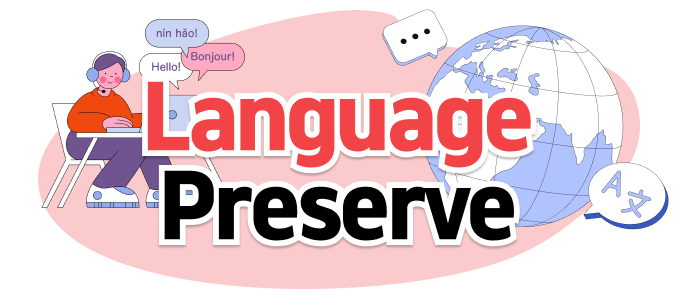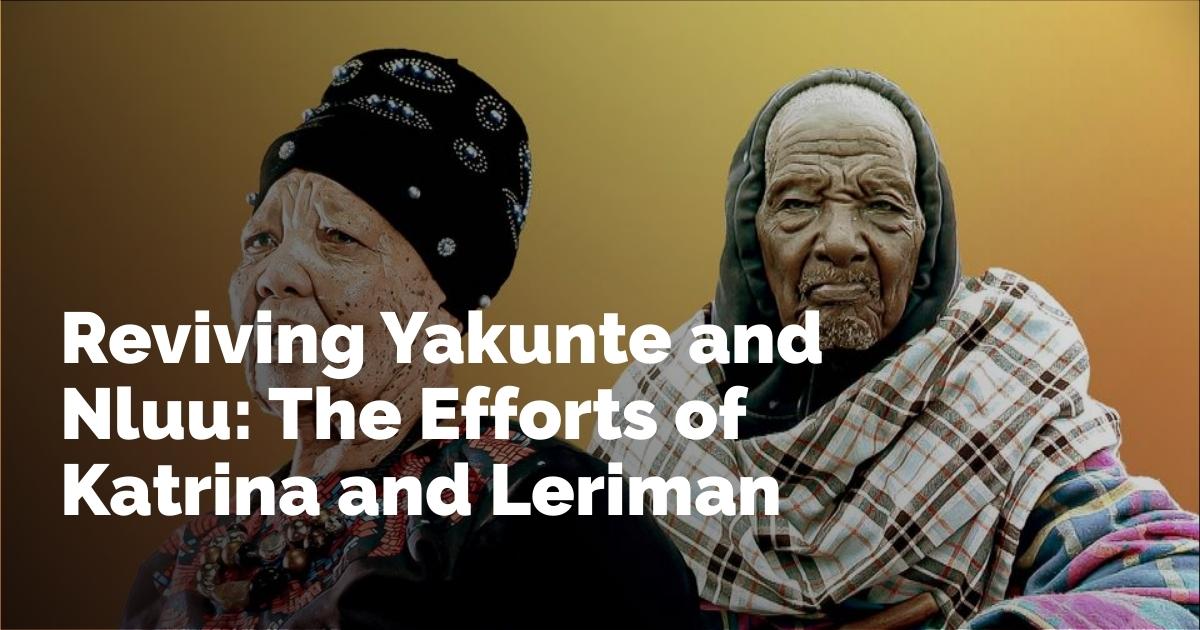Katrina, Leriman: Guardians of Indigenous Languages at Risk
A Language on the Brink
At the age of 92, Ouma Katrina Esau bears a unique responsibility: she is the last fluent speaker of the Nǀuu language, a legacy of the San people in Southern Africa. This indigenous language is part of the Tuu language cluster and was once prevalent across what is now Namibia, Botswana, and South Africa. Decades of colonialism, apartheid, and modernization, however, have rendered Nǀuu critically endangered.
Katrina's attachment to her language is profound. She expresses her desire for Nǀuu to survive beyond her lifetime, lamenting the absence of companions with whom she can converse in her mother tongue. The echoes of a painful history resound in her words, revealing how colonialism and apartheid once made Nǀuu speakers a target of ridicule, forcing many—Katrina included—to abandon their language.
A Flicker of Hope
The decline of Nǀuu seemed irreversible until a small revival began in the 1990s within the Northern Cape. Katrina and a handful of elders, who still remembered the language, dared to speak Nǀuu again, despite the shadows of their past experiences. Today, Katrina stands alone from that cohort, determined to preserve the language she loves.
From her small classroom in Rosedale, on the outskirts of Upington, Katrina passionately imparts Nǀuu to younger generations. Her teaching methods are hands-on and engaging, as she employs songs and repetitive phrases to instill both the language and the discipline needed to master its intricate sound patterns. Her dedication led to the co-creation of a children's book in Nǀuu, a venture she shared with her granddaughter, Claudia Snyman.
Claudia is as passionate as her grandmother in this mission. As a language activist, she sees the threat of the language disappearing but refuses to allow Katrina's work to be in vain. This shared commitment was recognized when Katrina received an honorary doctorate from the University of Cape Town in 2023.
Preservation Across Continents
Across the African continent, in the heart of Kenya, another indigenous language hangs in the balance: Yakunte. Spoken by the Yaaku community, Yakunte is also listed as critically endangered. As of 2019, only two native speakers were alive—Stephen Leriman and his brother Leteiyon.
Leriman is a well-respected figure within the Yaaku community, often referred to as their "professor" for his deep knowledge of the language, culture, and environment. His dedication to revitalizing Yakunte is rooted in a deep cultural pride, which he effectively passes on to his granddaughter, Julian Lorisho.
Julian was influenced by her grandfather's poignant lesson: to not know one's language and culture is to be like a zebra without stripes—a loss of identity and meaning. Inspired by this powerful metaphor, Julian committed herself to learning Yakunte. As an adult, she teaches nearly 300 students, aiming to pass on the rich traditions and languages inherited from her grandfather.
Home and Heritage
Julian's efforts to preserve the Yakunte language are closely tied to the preservation of the Yaaku homeland. "Shulumai tepui," a phrase in Yakunte, means "this is my home," emphasizing a deep connection between language, land, and identity. Historical sites like the Sholumai cave, filled with remnants of Yaaku life and artistry, speak volumes of the intertwined nature of language and culture.
For the Yaaku, as Saidimu, the manager of Shulmai Community Conservancy, explains, the language, forest, and life are parts of one whole. Losing Yakunte means losing not only a language but also the identity and history rooted in their homeland.
The Broader Picture
Language is more than a means of communication—it is a vessel of identity, a way to trace origins, and a repository of customs and traditions. Dr. Lorato Mokwena, a linguist, emphasizes that when a language is lost, so too are the stories, identities, and histories that it embodies.
Despite the severe challenges facing indigenous languages across the African continent, there remains hope. The efforts of individuals like Ouma Katrina and Stephen Leriman inspire communities and offer a glimmer of possibility—that through determination and dedication, the languages of our ancestors may not just survive but thrive once more.
출처 : Original Source

